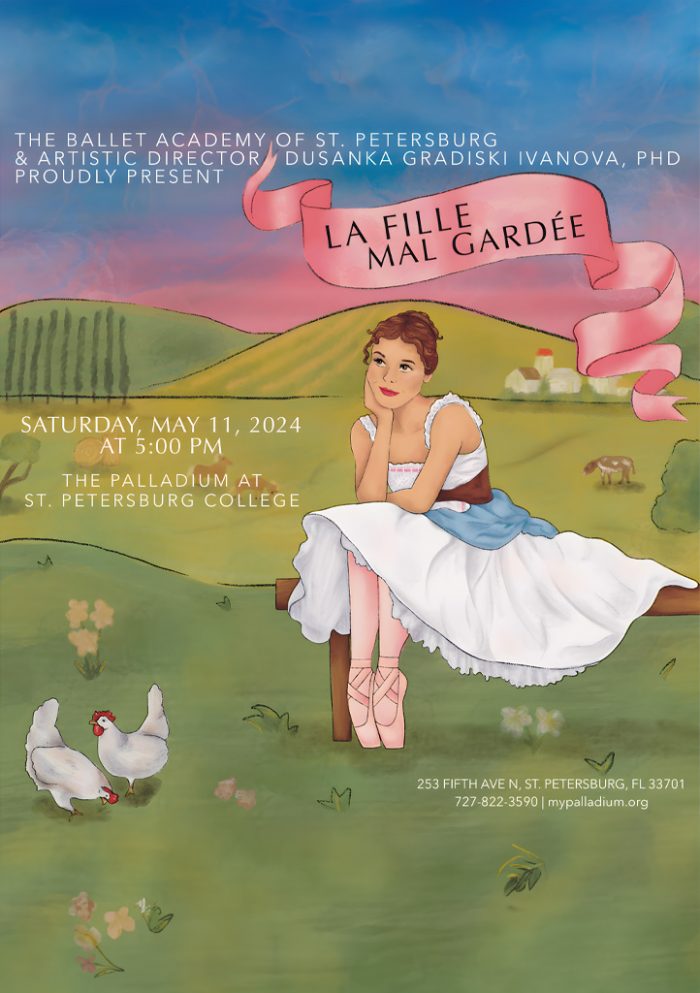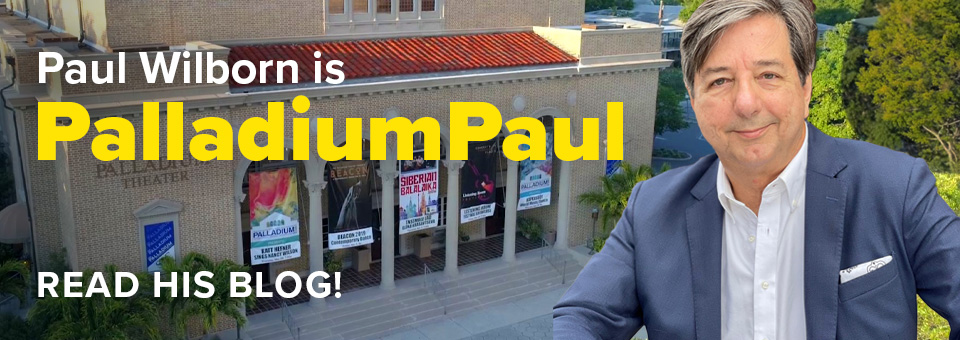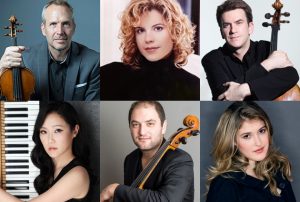Tuesday night is the final performance of St. Petersburg Opera’s latest hit, Mozart’s Don Giovanni. Tampa Bay Times critic Andrew Meacham praised this season opening production.
There are still some tickets remaining for Tuesday’s 7:30 performance. Call the Palladium box office at 727-822-3590 or follow this link for on-line tickets and information.
You can read the full review by following this link or enjoy this abridged version below:
By Andrew Meacham-Times Performing Arts Critic
Wolfgang Amadeus Mozart broke barriers in opera, and not just by weaving those impossible harmonies with seemingly little effort.
Together with librettist Lorenzo da Ponte, he also relished any chance to tweak the upper class, first in The Marriage of Figaro and Don Giovanni. The St. Petersburg Opera opened its season Friday with Don Giovanni at the Palladium.
In Mozart’s opera, the composer leaves an impression on the stage as an invisible character, a fusion of musical form and dramatic content so impeccable, it’s impossible not to think of him from time to time. It’s up to the cast to bring those elements to the surface, as does this ensemble.

A scene from Don Giovanni
Baritone Gustavo Feulien in the title role looks the part, playing a handsome nobleman so dedicated to serial womanizing that he records his conquests in a thick book. He has a richness in the lower range (and an occasional airy harshness higher up), a dramatic voice that blossoms in romantic arias to one woman or another.
His sidekick Leporello, bass Christopher Nazarian, exudes a sympathetic warmth, a reliable vocal floor and the only check on his amoral master. These two become further entangled when a masked Giovanni forces himself on Donna Anna, then kills her father (the Commendatore), who has come to her rescue. Chelsea Lehnea makes a strong entrance as Donna Anna, the daughter, vowing revenge. Her soprano seemed a bit thin in the upper register yet never faltered. Besides her vocal control, Lehnea bonded to her character like epoxy, showing an acting strength that’s nice if you can get it but don’t necessarily expect in opera.
These scenes, which take a while building the story into what it will become, unfold economically thanks to Karl Hesser’s stage direction. Staples such as cavorting villagers or small talk at parties are kept to a minimum. The important scenes bring out characters as well as voices.
From her opening aria, Rachael Marino establishes her role as the long-suffering Donna Elvira with unexpected sfordanzos, or forceful notes, and a comic touch. Nazarian gets his first chance to shine on his own by telling Elvira that the man she thinks is her husband has had sex with more than a thousand women throughout Europe, the “catalog” aria.
All of which is well and good, the performances competent or promising but not thrilling. The best, however, lies in store.
The first major turn — in which Mozart indicates he’s going to crank things up a notch — comes with a quartet midway through the first act. Donna Anna and her boyish fiance, Don Ottavio, exchange doubts about both Elvira and Giovanni, who are meanwhile assailing or angrily denying Giovanni’s bad conduct.
Anna then realizes Giovanni was the intruder who attacked her and murdered her father, in an aria full of big, dramatic chords in which Lehnea hits numerous high A’s with ease. For his part, Sean Christensen as Ottavio fills in solidly enough in a light, almost lyrical tenor, but he steps forward in an impressive and lengthy aria later.
Kelly Curtin and Adam Cioffari provide sympathetic victims as Zerlina and Masetto, a peasant couple. Big arias and braided harmonies from duets to sextets fire off nonstop for the rest of the opera. Giovanni’s soulless, lonely party culminating the first act represents another gear shifted, with different time signatures running simultaneously as momentum builds against Giovanni’s deception. Maestro Mark Sforzini, meanwhile, roused an orchestra loaded with current or former members of the Florida Orchestra, including several principals.
Tension builds to the final scenes, in which Giovanni faces off with the aggrieved ghost of the Commendatore, sung with severity if not a ton of power by bass Erik Kroncke. The production uses dancers to drag the rogue, defiant to the end, off to hell. That might make a fitting end, but the ensemble needs to resolve romances, declare justice was done and treat us one more time to those glorious harmonies.








Leave a Reply